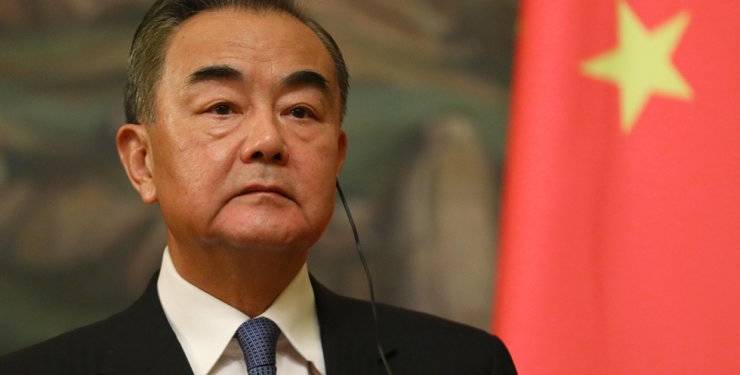Even with all the pompous investments, the Middle East looks like a lost cause for China. However, with such investment, Beijing cannot just leave packing out of the region. In the latest bid to revitalise the relations, Chinese Foreign Minister Wang Yi called for a new forum to diffuse tensions in the Middle East.
According to the Chinese Foreign Ministry, Wang Yi reiterated Beijing’s support for Tehran. During the meeting on Saturday at Chinese south-western city of Tengchong, the Foreign Ministers also reaffirmed their commitment to Iran Nuclear Deal (Joint Comprehensive Plan of Action) adopted as on 18th October 2015.
The statement said that the forum would “enhance mutual understanding through dialogue and explore political and diplomatic solutions to security issues in the Middle East.” It clearly establishes that this forum is a desperate effort to gain substantial strategic influence in the region.The desperation is evident after President Donald Trump’s masterstroke, which is, the Abraham Accord.
The increase in Chinese investment in the Middle East is directly proportional to the perceived retreat of the US from the Middle East. With the election of President Trump, he announced that in a phased manner, the US will call back its troops from the Middle East and Afghanistan.
China has many interests in the region as China is the only major power which has to import a bulk of its fossil fuel requirements. The perceived departure of the US from the region has increased the Chinese activity in consolidating their interests at the Strait of Hormuz, Bab-el Mandeb, and the Suez Canal, which are the trading choke points.
To read more: America is leaving a major void in West Asia and it could be China’s happy hunting ground soon.
The Chinese investment in the region has increased since then, and as of May 2020, they are the largest trading partner of 11 Mena countries. The 11 Mena countries consist of 10 Arab League nations and Iran. In addition, China’s trade with all 22 Arab League nations reached up to USD 244.3 billion, and when combined with Israel, Iran and Turkey, it crossed USD 300 billion. Besides, China also promised a comprehensive investment of USD 400 billion in Iran.
In all its excitement, China seems to have lost the essence of Trump’s announcement in translations. The decrement in the US boots on the ground does not mean that the US was willing to lose strategic and diplomatic influence in the region. On the contrary,the US has increased its engagement with all the allies and is working on bringing them together.
The Abraham Accord is the shining example of the influence that the US enjoys in the region, and the importance it gives to its allies in the region. As per the accord, Israel, U.A.E and Bahrain have agreed to establish diplomatic ties and work together for a peaceful and prosperous region.
To read more: China was fast filling the vacuum left by the US in West Asia but then came Trump’s back-to-back masterstrokes.
The nomination of Donald Trump by the Nobel committee for the Nobel Peace Prize illustrates the significance of the accord as well as the role of the US President for the same. In addition to that, the U.A.E is sure to get the F-16s and other US allies in the region, too, are getting a major boost in their military capabilities as Mr Trump has agreed for the sale of military equipment.
With this turn of events, China is in a fix. The Return on Investment (RoI) will not be on par with its expectations, and the US influence is growing stronger than ever in the region. The Chinese approach to playing as a friend of everyone by investing mammoth amounts in Saudi Arabia, Iran, Israel, Turkey and other countries in the region, has negated any geopolitical clout it could have earned if it had supported one side.
The enmity between Shia Iran and Sunni Saudi Arabia, as well as their fight for regional dominance, takes precedence over any amount of money and lucrative trade options.This is a calculation Xi Jinping forgot to take into account. Thus, all the gulf countries now consider China as a trade partner and an Iranian ally which cannot be trusted in regional geopolitics.
As President Trump’s efforts in uniting pro-Saudi and anti-Iran countries are working out successfully, China is making one last desperate effort by calling for a regional forum. Unbecoming of the great power China claims to be, it is declaring its desperation by publicly requesting countries to consider a forum led by China.
In an event of the creation of a China-led regional forum, it will be nothing more than a Persian regional forum with Iran, half of Iraq and parts of Yemen as the only people cheering for the forum. In which case, the best diplomatic channel for China is to deal with the Middle Eastern countries bilaterally because no one would be interested in joining a forum led by an astute ally of Iran, other than Iran itself.



























